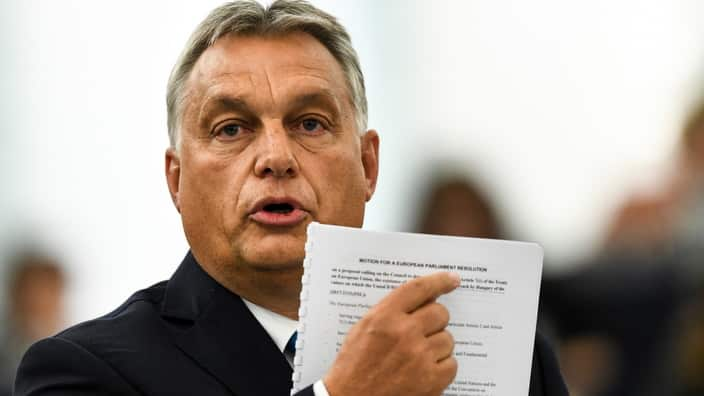Hungary's parliament has approved constitutional changes targeting LGBTIQ+ people and what the government calls "foreign-funded political pressure networks" that undermine the country's sovereignty.
Since his return to power in 2010, Prime Minister Viktor Orbán has widely restricted the rights of the LGBTIQ+ community, the media, courts and academia. In mid-March, he vowed to undertake an "Easter cleanup" against his domestic opponents he has called "stink bugs".
The constitutional amendments — which proclaim that people can only be male or female — echo moves on gender by Orbán's ally, United States President Donald Trump.
The vote, which passed with 140 members voting for and 21 against in parliament on Monday, emphasises the protection of children's physical and moral development over all other rights.
It also allows the "temporary" stripping of citizenship from some dual or multiple nationals, which could target Hungarian-American billionaire George Soros, a regular fixture of populist conspiracy theories.
'Soft Putinism'
Critics say the proposed legal changes further erode democratic rights in the central European country, moving the European Union member state even closer to the kind of authoritarianism witnessed under Russia's President Vladimir Putin.
Szabolcs Pek, chief analyst at the think tank Iranytu Intezet, said: "You could consider this soft Putinism."
"People are not falling out of the window, but the government is increasingly limiting the space for opposition politicians, journalists and civil society."
Orbán's legislative "boisterousness" is a bid to take back control of the public agenda, according to Pek.

The amendments underpin legislation passed on 18 March that bans the annual Pride march, effectively restricting freedom of assembly and triggering protests against the changes fast-tracked by Orbán's Fidesz party.
Fidesz said the event could be considered as harmful to children and protecting them would supersede the right to assemble.
The LGBTIQ+ community has been a target of the ruling party for years, the organisers of Pride said on their website.
They said if the government party tries to ban a rally for the rights of the LGBTIQ+ people, there is no guarantee they would not ban peaceful protests by other groups.
For the latest from SBS News, download our app and subscribe to our newsletter.

